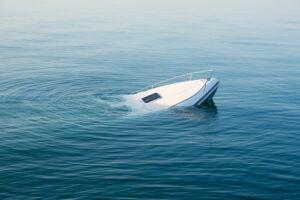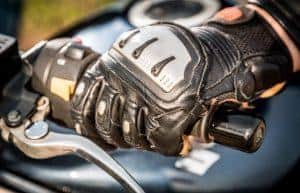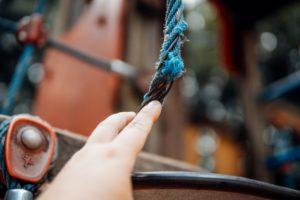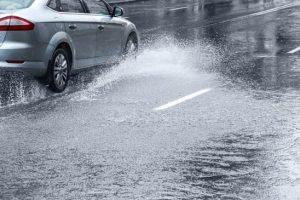
One of the perks of living in the South is that you can enjoy boating nearly all year long, both inland and offshore. However, are you prepared to act if the vessel encounters a dangerous obstacle, severe weather, or a collision with another boat?
No matter the cause, boating accidents can be terrifying for everyone involved. Not only are the people involved disoriented and possibly injured, but the boat might be sinking or the passengers already in the water.
Important items like life jackets and cell phones can also be lost in the chaos. In addition to property damage and physical injuries, many people who are involved in boat accidents face a deep fear of drowning after surviving a traumatizing accident, especially when it occurs in water that is infested with alligators or other predators.
While there is no way to entirely remove the danger from boating, taking a few simple steps can minimize your risk and knowing what to do after a boat accident will ensure that you and the ones you love are protected if the worst happens.
What Is a Boating Accident?
The United States Coast Guard defines a “boating accident” as an occurrence where someone dies or disappears, where medical attention beyond first aid is required, or where the boat is destroyed or the damage totals more than $2,000.
A boat accident does not just have to involve a collision between two vessels either; they can also occur when a boat operator loses control or severe weather strikes, equipment malfunctions, or a boat encounters a dangerous obstacle in the water. Likewise, a boating accident can also involve other watercraft such as kayaks or jet skis that are sharing the water with larger vessels.
For a free legal consultation, call 800-537-8185
Who Is Responsible in a Boating Accident?
Determining who is liable for a boat accident will depend on the unique circumstances of each accident. If two boats collide, law enforcement and insurance companies will try to figure out whose behavior caused the accident by investigating whether the boat operator was intoxicated and acting in a reasonable manner.
They will also look at whether the person in charge was properly licensed and trained under state laws or international law, depending on where the accident occurred. Each state has different laws regarding what is required to legally operate a boat.
For example, in Louisiana, Mississippi, and Arkansas boaters born after a certain year must take a state-approved boat safety course to legally operate a boat, but they will not need a special license.
However, in Arkansas boat operators must take a safety course and obtain an Arkansas boater license. You can also reach out to the boat safety contact in your state if you have a specific question. The Gulf of Mexico has different rules depending on the type of vessel and its purpose, which will involve maritime laws and regulations.
What If the Accident Occurs on Someone Else’s Boat?
When the accident occurs while riding on someone else’s boat, the question of liability gets even more complicated. Tour boats are a popular form of entertainment throughout the South, however, the industry does not always make customer safety a priority.
When the accident happens on someone else’s boat, the injured person may have a claim against the owner’s insurance policy and in the case of tour boats, against the company’s commercial liability insurance.
Fact Check
In Florida alone, there were over 75 airboat accidents in a span of just three years, yet tours remain unregulated.
What If You’re Involved in a Boat Accident at Work?
Boat accidents happen while people are working on commercial vessels, too. Every circumstance is unique, but generally, the Longshore and Harbor Workers’ Compensation Act (LHWCA)ensures that people working on boats will be able to recover for their medical treatment and lost wages when they are injured while working.
The LHWCA covers shipbuilders, port workers, repairmen, and longshoremen, among other jobs. If you are involved in a boat accident, especially while working on someone else’s boat, an attorney can help you navigate the complex legal waters of determining who is responsible and what laws apply.
What Can You Do to Prevent a Boating Accident?
You will never be able to prevent all boat accidents, but taking a few simple steps can reduce your chances of being injured if your day on the water suddenly goes wrong.
First, it is crucial that you check the regulations for your state, boat, and the body of water where you will be boating. This will ensure that you are legally on the water and in compliance with all the applicable laws.
Second, you should bring along a map of the area, including underwater hazards, so you don’t get lost and can avoid hidden dangers. Third, it’s a good idea to tell someone where you are going and when you plan to be back so they will know to get help if you don’t return.
Finally, making sure that you have all the recommended boat safety equipment can go a long way in feeling safer before you hit the water.
Boat Safety Equipment Checklist
Laws regarding what equipment is required vary from state to state but generally you should have:
- Life jackets for every passenger, as well as extra personal flotation devices (“PFDs”)
- Navigational lights for twilight and nighttime hours
- Fire extinguisher
- Tow rope
- Horn, whistle, or bell
- Sunscreen
- Extra food and water
- Cell phone, radio, or other communication device
- Boat registration properly displayed and copies of any required training certifications or licenses
Click to contact our personal injury lawyers today
What do You Do After a Boat Collision?
No one sets out for a fun-filled day on the water thinking that it will end with a boat accident. But if something does happen, knowing what to do can help save lives and prevent injuries during the crucial moments following an unexpected accident.
The first thing you must do if you are involved in a boating accident is make sure that all of your passengers are ok and determine whether anyone needs immediate medical attention.
Once everyone is accounted for and wearing a life vest, you need to assess the damage to the boat and determine if you will be able to reach shore. If the boat is in danger of sinking or any passengers need medical treatment, you should call for help immediately. The US Coast Guard’s emergency maritime number for most southern states is (800) 537-8185.
After you have addressed all the safety issues, you will want to gather as much information as possible about the accident. Try to record the name of every vessel involved and its registration number, as well as the names and insurance companies of the operator and the owner of the boat. If there were any witnesses, getting their accounts and contact information can be very helpful down the road.
Finally, reporting your boating accident to the US Coast Guard may be required depending on what happened. If anyone was injured or any vessel was destroyed or received damage totalling $2,000, you will need to report what happened to the Coast Guard and possibly to law enforcement. You can find the required forms for reporting to the Coast Guard here.
Have You or Someone You Love Been Injured in a Boat Accident?
If you or a loved one has been involved in an accident while boating, you may be eligible to file a claim for medical costs, emotional distress, and further damages.
Fill out our free case evaluation form to see if you can make a claim for injuries and damages. An experienced boat accident attorney at Morris Bart will assist you in the evaluation process. Initial consultations are FREE and we work on a contingency-fee basis.
Click here to see more about our office locations throughout Louisiana, Mississippi, Alabama, and Arkansas.
Questions?Call 800-537-8185
to find a Morris Bart office near you.





